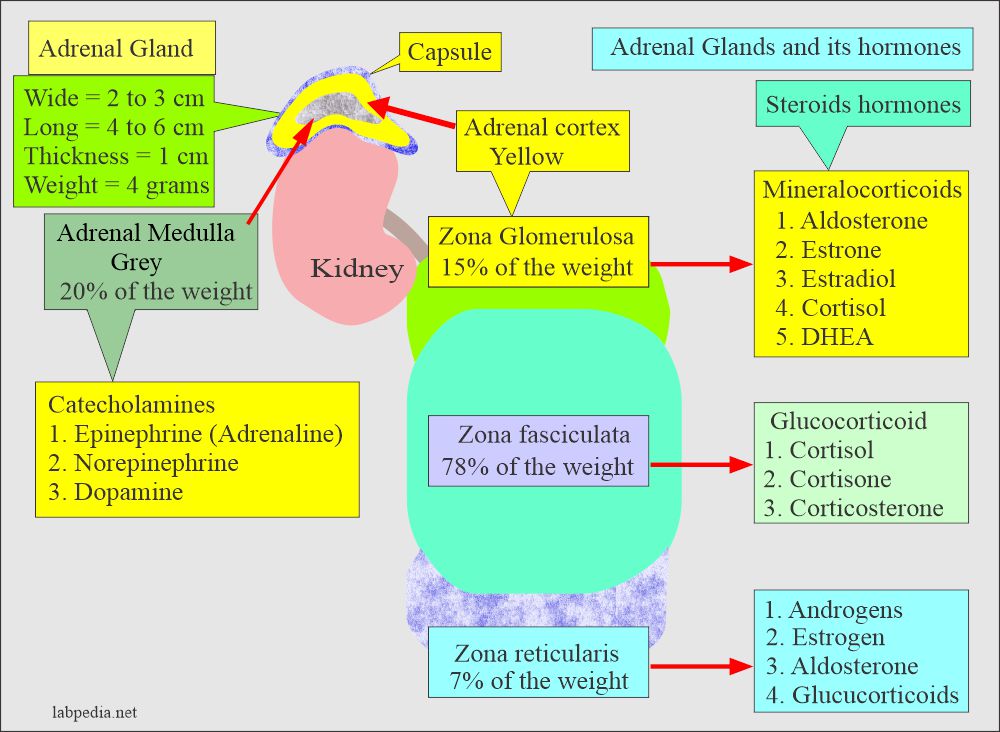

Corticosteroids Corticosteroids are a group of steroid hormones produced from the cortex of the adrenal glands. These hormones are involved in several essential biological functions. The adrenal glands secrete a number of different hormones that are metabolized by enzymes either in the gland or in other parts of the body. Hormonal imbalances can cause a wide range of symptoms and health problems. This can cause them to produce too much or too little hormone. Abnormal signals can disrupt the amount of hormones produced by the pituitary gland to the adrenal glands. The adrenal glands are controlled by the pituitary gland - another part of the endocrine system. The marrow produces neurotransmitters like epinephrine and dopamine that function to create rapid responses throughout the body in stressful situations. The production of steroid hormones is called steroidogenesis and is involved in a number of reactions and processes taking place in cortical cells. The adrenal cortex produces three main steroid hormones: Mineralocorticoids, glucocorticoids, and androgens. The adrenal cortex itself is divided into three regions: coronal glomerulosa, fasciculata, and reticularis. Each gland has an outer sheath that produces steroid hormones and an inner marrow. The adrenal glands are endocrine glands that produce a variety of hormones including adrenaline and the steroids aldosterone and cortisol.


 0 kommentar(er)
0 kommentar(er)
